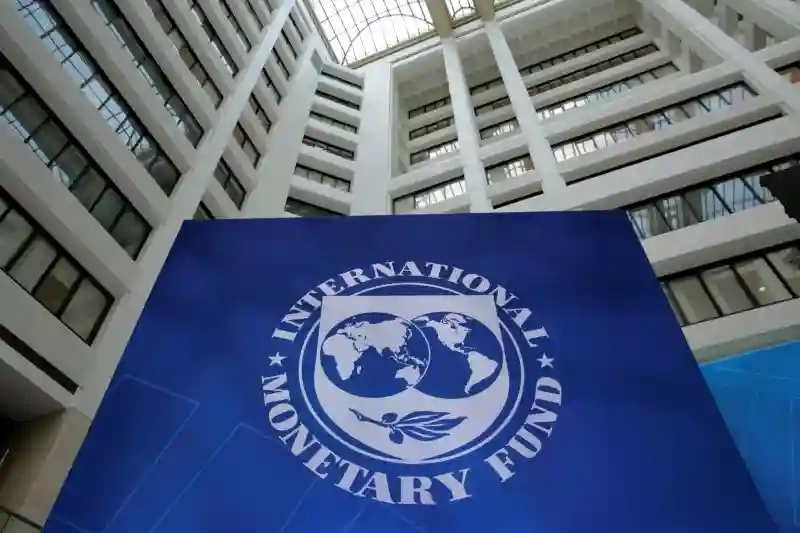An International Monetary Fund (IMF) staff team led by Wojciech Maliszewski was on a visit to Harare, Zimbabwe from 31 January to 14 February 2024 to discuss the authorities’ request for a Staff Monitored Programme (SMP) and commence the 2024 Article IV Consultation.
An IMF Staff Monitored Programme, or SMP, is an informal agreement between an IMF member country and IMF staff to monitor the member country’s economic programme.
After the IMF mission, Maliszewski issued the following statement:
Economic activity in Zimbabwe continues to show resilience in the face of currency instability and high inflation.
GDP growth is estimated at 5.3 percent in 2023, on the back of an expansion in agriculture and mining, and—buoyed by related foreign currency inflows and by remittances—in the highly-dollarized domestic trade and services.
Growth is expected to decelerate to about 3¼ percent in 2024, partly reflecting the impact of a drought on agriculture production and lower commodity prices.
These factors are also expected to reduce foreign currency inflows, but remittances will likely remain strong, and the current account is projected to be in small surplus.
This should support liquidity in the dollarized part of the economy, sustaining growth in domestic trade, services, and construction.
However, local-currency (ZWL) instability intensified: the official exchange rate has depreciated by about 95 percent since the beginning of December 2023; the gap to the parallel market rate remains wide (above 30 percent); and ZWL inflation is still very high.
This instability weighs on sentiment, while exchange rate restrictions (prescribing retailers to use the official ZWL exchange rate with up to a 10 percent margin—inflating US dollar prices) continue to be a burden on the formal sector.
They promote informality, which erodes the tax base and undermines longer-term growth prospects.
Risks remain skewed to the downside, and the outlook will crucially depend on progress toward macroeconomic stabilization and transformational structural reforms.
The authorities have requested a new Staff Monitored Program (SMP) to support their stabilization efforts and re-engagement with the international community through building a track record of sound economic policies. The mission was a step in the preparations for an SMP and initiated Article IV consultations.
Discussions covered policies to restore macroeconomic stability and improve growth prospects, focusing on addressing the sources of fiscal pressures including quasi-fiscal operations (QFOs) of the Reserve Bank of Zimbabwe (RBZ); liberalizing the foreign exchange market and establishing an effective framework for exchange rate and monetary policies; and progressing on reforms to improve economic governance and reduce corruption vulnerabilities.
The mission welcomes the authorities’ strong resolve to address the sources of fiscal pressures. The transfer of RBZ’s external liabilities related to the QFOs to the Treasury—which include long-term loans, short-term liabilities, and the “blocked funds”—represents an important step in this regard.
However, the larger-than-anticipated costs of servicing these obligations will open a financing gap in the 2024 budget.
Discussions focused on identifying options to close this gap in a way that avoids inflationary financing, and the mission encourages the authorities to develop and implement a comprehensive plan to this end.
This should be accompanied by ensuring that the appropriate legal framework is in place to complete the transfer.
Restoring macroeconomic stability will also require addressing other sources of fiscal pressures, including those emanating from other non-core (not related to the goal of price and financial stability) operations of the RBZ and from SOEs.
The mission encourages the authorities to accelerate the FX market reform by promoting a more transparent and market-driven price discovery in the official exchange rate and by removing existing exchange restrictions and distortions.
In particular, the restriction on the 10 per cent allowable trading margin for pricing domestic transactions should be eliminated.
The FX market reform should be accompanied by the establishment of an effective framework for exchange rates and monetary policies.
Establishing such a framework requires careful preparations, including, among other steps, comprehensively addressing underlying sources of fiscal pressures. The RBZ Act should be amended, including narrowing its legal mandate to core functions.
Structural reforms aimed at improving the business climate, strengthening economic governance and reducing corruption vulnerabilities are key for promoting sustained and inclusive growth and would bode well for supporting Zimbabwe’s development objectives embodied in the country’s National Development Strategy 1 (2021-2025).
In this context, the mission encourages the authorities to ensure that the corporate governance arrangement, transparency and financial reporting, and accountability oversight of the recently established Mutapa fund are in line with international standards and good practices.
Sustainable development will also require the resolution of the debt overhang. International re-engagement remains critical for debt resolution and access to financial support.
In this context, the authorities’ re-engagement efforts, through the Structured Dialogue Platform, are key for attaining debt sustainability and gaining access to concessional external financing.
The IMF maintains an active engagement with Zimbabwe and continues to provide policy advice and extensive technical assistance in the areas of revenue mobilization, expenditure control, financial supervision, debt management, economic governance and anti-corruption, and macroeconomic statistics.
However, the IMF is currently precluded from providing financial support to Zimbabwe due to its unsustainable debt situation—based on the IMF’s Debt Sustainability Analysis (DSA)—and official external arrears.
An IMF financial arrangement would require a clear path to comprehensive restructuring of Zimbabwe’s external debt, including the clearance of arrears and a reform plan that is consistent with durably restoring macroeconomic stability; enhancing inclusive growth; lowering poverty; and strengthening economic governance.
The IMF staff held meetings with the Minister of Finance and Economic Development Hon. Professor Mthuli Ncube, the Deputy Minister of Finance and Economic Development Hon. David Mnangagwa, the Reserve Bank of Zimbabwe Governor Dr John Mangudya, other senior government and RBZ officials, the private sector, civil society organizations, and Zimbabwe’s development partners.
The IMF staff wishes to thank the Zimbabwean authorities and other stakeholders for the constructive discussions and support during the 2024 Article IV consultation mission.
More: Pindula News

